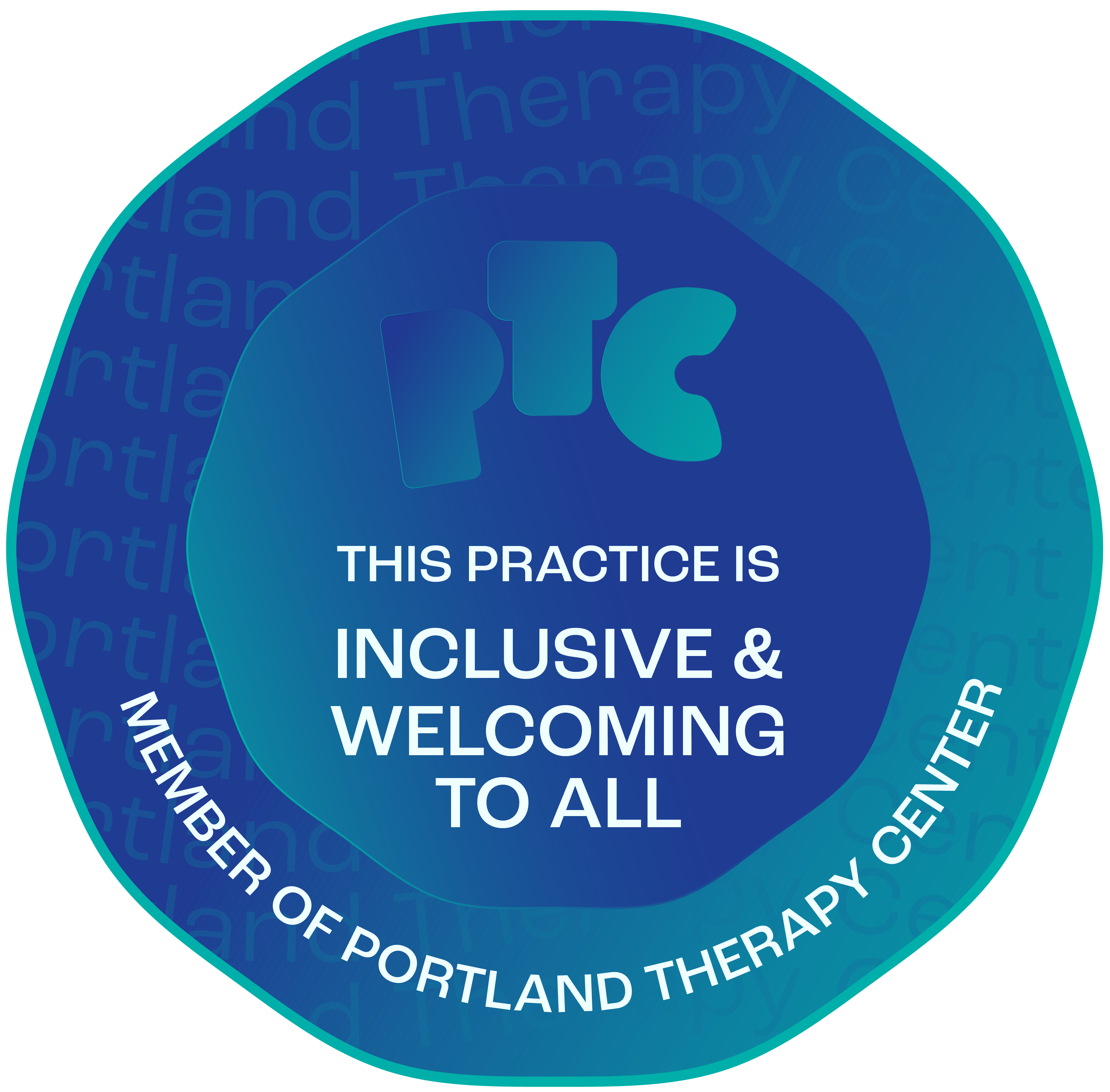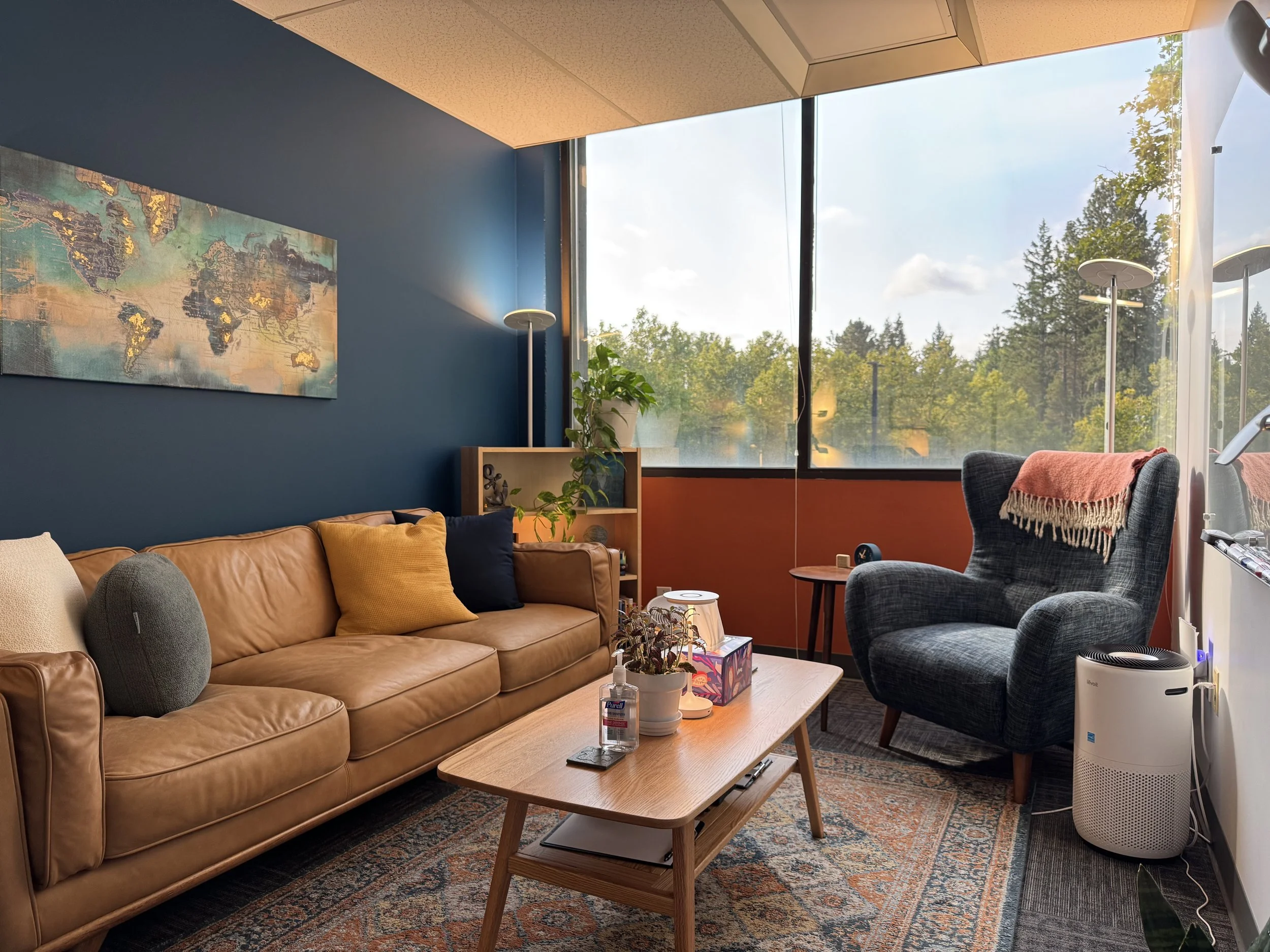
Michael Morales, LMFT
Compassionate Counseling for Couples
So You’re Looking for a Couple Counselor
It’s been ages since you fell in love. It’s hard to remember what that felt like–even more challenging to imagine having that feeling back in your relationship. You started with so much promise. You were excited to do life together, but then life got in the way and over the years the excitement disappeared.
Now you’ve come to the point where you feel like you hardly know them anymore. You don’t even recognize yourself. You’ve come to a crossroads and you don’t know if you’ll continue the journey together or go your separate ways. You never imagined it would come to this. You’re being encouraged to find a couple counselor but you don’t have a lot of hope–what good could it do?
It’s not that you want to go back in time and relive the “good ol’ days” of your early relationship. You’ve experienced a lot of life together–with all its ups and downs–and you don’t want to undo it all. Besides, you know what it is to be young and in love, and right now that just sounds exhausting.
What you want is to have a love that has matured along with you. A relationship that grows stronger through life’s storms. A partner who helps you become more yourself. And you want to be the kind of partner who does the same. Don’t dismiss this as a pipe dream! It’s all possible–I’ve seen it many times in my work with couples just like you.
Hope for You in Couple Counseling
You’re probably thinking there’s no way I’ve seen a relationship just like yours–you’ve certainly never met another couple quite like you. And you’re right! I’ve never seen anyone just like you. But I have met with many couples with their own unique–sometimes mindboggling–challenges and my experience gives me hope for what we can do with yours.
Here are just a few of the issues that my clients and I have successfully worked through:
Conflict management
Communication Issues
Trauma
Infidelity / Affair Recovery
Biracial relationship issues
Navigating cultural differences
Intimacy issues
Strengthening co-parenting strategies
Grief and Loss Issues
Insecurity
Blended families
Family transitions
Evolving spirituality
Pre-marital counseling
So, who is this guy who holds hope for your relationship?
About Michael Morales, LMFT
Hello, my name is Michael Morales. You can call me Michael. I’m a licensed marriage and family therapist located in Beaverton, Oregon. I’ve been doing this work for the past 10 years. Much of my time has been spent in agencies and group practices–seeing individuals, couples, and children in crisis. I’ve found I do my best work with couples experiencing complex issues.
My courage to work through sticky situations–what I like to call “bees’ nests”–has been developing in me since childhood. I'm a second-generation Filipino-American who was also raised in two different faith traditions. So I’ve had a lot of practice learning to navigate and make peace with various value systems that appear to conflict.
Growing up in the Bay Area of California, I thought I would pursue a career in computer engineering. But, after my first Psychology class in college, I realized I was more interested in human relationships than computer science. I switched majors to Psychology and pursued my counselor education and training at George Fox, here in the Portland area.
It has recently become clear that I want to mentor and teach others who want to become counselors. For this reason, I also work as a clinical supervisor and occasionally teach as an adjunct professor at George Fox.
I want to emphasize that I don't take myself too seriously. I'm human and will make mistakes. If I mispronounce your name or overlook an essential detail, please don't hesitate to correct me–many times, if needed. I appreciate your help in making things right.
Now, let's talk about my commitment to therapy. I take this work very seriously. You can expect me to be well-prepared for our sessions and ready to engage in the work with you. All I ask from you is to bring at least one percent of your willingness and commitment. I can't work with zero, so showing up for therapy is essential for progress. If you can commit to that one percent, I can work with that.
What to Expect in Individual or Couple Therapy
So what does the process of therapy look like? And how do you know if you’re making progress? Let’s start with a broad overview of what to expect in therapy. Much like a good book or movie, therapy has a beginning, a middle, and an end.
The Beginning:
The start of your therapy journey began long before you found this website. It started when you realized you needed help or wanted to make a change because you were no longer satisfied with how things were going. This led you to search for a therapist, marking the beginning of your therapy experience.
When you choose me as your therapist, we start with a Clinical Assessment. This is a conversation where I gather information about your situation. With this information, I'm able to provide you with a diagnosis or a clinical definition of what might be bothering you. Then together we work on a treatment plan–a strategy to address your concerns.
The process looks a little different if you are an individual pursuing counseling or a couple.
Individual counseling assessment process
Session 1 - clinical assessment (50 minutes / $210)
Session 2 - diagnosis and treatment plan (50 minutes / $185)
Couple counseling assessment process
Session 1 - couple assessment (80 minutes / $310)
Session 2 - individual interview (50 minutes / $185)
Session 3 - individual interview (50 minutes / $185)
Session 4 - couple treatment plan (80 minutes / $285)
These meetings are a chance for us to figure out if we are a good fit. By the end of this assessment process, I know if I will be able to help you, and you should know if you want to work with me. Once we agree on the clinical treatment plan and commit to it, we move on to the next phase.
The Middle:
In this phase, we do the work you most recognize as therapy–lots of conversations and interventions. I often give you homework assignments to do in between our weekly sessions. This supports the work we do in the clinical hour and makes it more effective. During the first couple of months, you can expect to see some positive changes as you actively participate in the therapy process.
As therapy progresses, we sometimes encounter additional barriers or challenges. In those cases, we explore different tools or techniques based on what we discover. Throughout this middle part of therapy, I encourage you to provide feedback, as your input significantly enhances the effectiveness of our work.
The End:
Now, how do you know when you've reached the end of therapy? Just like a story, you'll see a clear transition. In the beginning, we talked a lot about the issue that brought you here. Towards the end, you notice that this "problem" starts to fade from our conversations. This is a positive sign, not because you're withholding information, but because it's no longer bothering you like it used to. You've found ways to address it meaningfully, perhaps even making it disappear altogether.
When you start struggling to come up with things to talk about in session, we begin to taper off our meetings and prepare you for life after therapy. And just like that, you’ve come to the end of the process.
Services & Rates
-
$275 for an 80-minute session
-
$175 for a 50-minute session
Office Location
9400 SW Beaverton Hillsdale Highway, Suite 250
Beaverton, OR 97005




